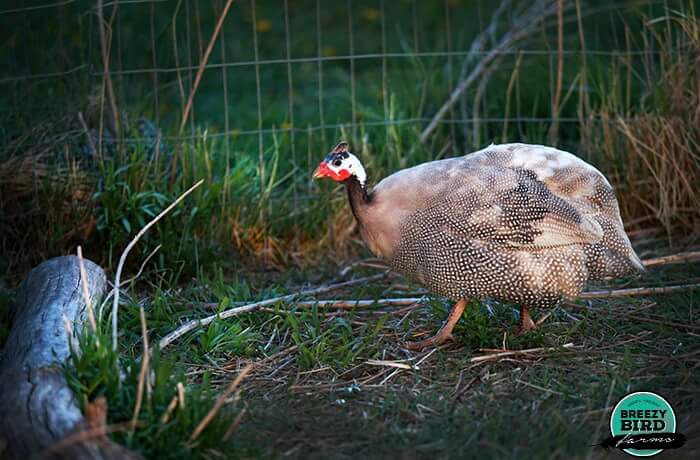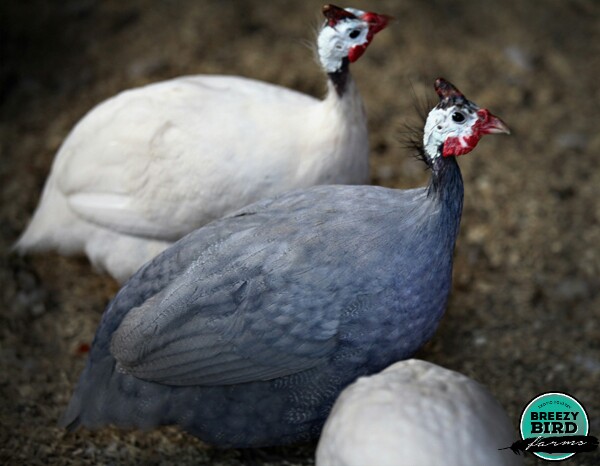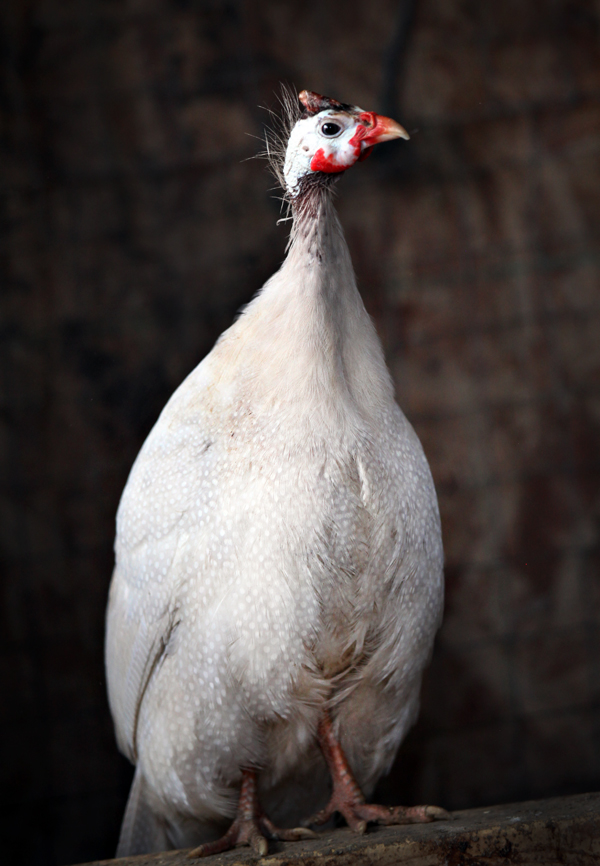Hatching Your Guinea Fowl Shipped Eggs
May 16, 2018
To successfully hatch any eggs, begin with fresh, clean, fertile eggs. Clean off any degree. For Eggs purchased by mail order, it is important to ensure that the eggs receive proper care in transit. Extremes of temperature and poor handling can destroy prospects for a good hatch.
Let the Eggs rest for 12-24 hours, pointy side down prior to incubation.

Guinea egg hatch after 26-28 days of incubation. My experience is that, with a properly calibrated incubator, they will start pipping on day 25 and hatch day 26.
The incubator should be stable at 100oF in forced air incubators and 102oF in a still air incubator. I am a fan of the "dry" incubation method. The humidity using a calibrated hygrometer being in the 30-45% range.
Eggs should be turned up until day 23. As with all eggs, turning from day one is critical in embryo development. It is often suggested to not turn shipped eggs for 24-72 hours but studies show that failure to turn eggs in the first few days can increase the dead in shell losses by as much as twenty five percent - the yolk compressed the embryo to the side of the egg and though it will appear to develop nicely - the keet won't be able to maneuver into a hatching position.
Never turn eggs full rotations. If manually turning, best results will occur by turning in the following pattern. Turn one: Anticlockwise 180 degrees. Turn two: Clockwise 180 degrees. Turn 3: End to end with small end down. It is recommended to turn eggs an odd number of times each day. This concept is based on the fact that most people have a pattern of not being next to the incubator for periods of time - we all have to work and sleep. Basically - the odd number will alternate the long and short time periods, i.e. while you are at work for more than eight hours. The more turns the better but never drop below three turns a day - especially in the first week. If using an auto turner, just set the eggs on day one and turn on the turner.
Wash your hands before you handle eggs. Candle eggs on day 10, 17 and 23 to evaluate air cells and look for clears, blood rings and intra-incubation deaths. Use a gram scale to measure weight loss - targeting 11-13% on day 23. Smell the incubator for signs of a bad egg. Remove any stinkers as they are infected and will wreak havoc on your hatch as well as your incubator.
On day 23 place the eggs in hatching mode. I prefer them on their side. Increase humidity to greater than seventy five percent and leave the eggs alone. In an incubator with the correct uniform heat, using fresh eggs, they will pip on day 25-26 and most will hatch within 24 hours of the first pip. If you have older eggs, then the hatch will be delayed on those eggs.
Wait till 24 hours from the first keet hatched to pull the dried keets and place in a warmed brooder. You can re-up the humidity by spraying some warm water on the sides of the incubator and pull the second batch the following day.
As you place Keets in the brooder, show them the water by dipping their beaks in it. The Keets will thrive best on 26% protein.

Posted by candace brown. Posted In : Egg Hatching


